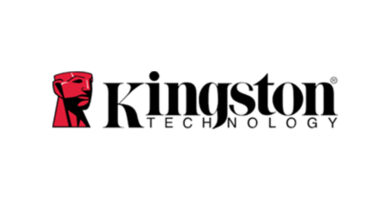
In the realm of public decision-making, the phenomenon known as the ‘street veto’ has long been a challenge. It refers to the ability of a vocal minority to obstruct or stall initiatives that have broad support within a community. This can happen through various means, including protests, petitions, or simply by exerting influence over decision-makers. While democracy thrives on healthy debate and diverse perspectives, the ‘street veto’ can sometimes undermine the will of the majority and stall progress.
However, in our increasingly digital age, technology offers innovative solutions to address this challenge. From digital platforms to data analytics, technology provides tools to amplify voices, facilitate dialogue, and promote more inclusive decision-making processes.
One of the most effective ways technology can combat the ‘street veto’ is by providing avenues for broader participation and engagement. Digital platforms and social media networks such as Twitter, Facebook, Nextdoor, PoGoSo Social etc allow individuals to express their opinions, share ideas, and mobilize support for causes they believe in. These platforms can serve as virtual town halls where people from diverse backgrounds can come together to discuss issues, deliberate solutions, and ultimately shape public policies.
Moreover, technology enables more transparent and accountable decision-making processes. Through online platforms, governments and organizations can provide access to information, updates on ongoing initiatives, and opportunities for public feedback. This transparency not only fosters trust between decision-makers and the public but also makes it harder for a vocal minority to manipulate or distort the narrative to serve their interests.
Furthermore, technology can empower marginalized communities and amplify their voices. In many cases, the ‘street veto’ is wielded by powerful interest groups or those with greater access to resources. However, technology can level the playing field by providing marginalized communities with a platform to organize, advocate for their interests, and hold decision-makers accountable. For example, community-driven mapping initiatives can help highlight areas of neglect or injustice, enabling residents to demand action from authorities.
Data analytics and artificial intelligence (AI) also play a crucial role in combating the ‘street veto.’ By analyzing large datasets and identifying patterns, decision-makers can gain deeper insights into public sentiment and preferences. This allows them to make more informed decisions that reflect the needs and aspirations of the majority, rather than succumbing to pressure from vocal minorities.
Moreover, technology can facilitate more inclusive and participatory decision-making processes. Platforms that use AI-driven algorithms can ensure that diverse perspectives are taken into account when formulating policies or making decisions. By analyzing a wide range of inputs, including social media posts, surveys, and public comments, these platforms can identify common themes and prioritize issues that resonate with the broader community.
However, while technology holds immense potential to combat the ‘street veto,’ it is not without its challenges and limitations. Access to technology remains uneven, with marginalized communities often lacking the necessary infrastructure or digital literacy to participate fully. Moreover, there are concerns about data privacy, algorithmic bias, and the potential for technology to be manipulated or weaponized for nefarious purposes.
To address these challenges, it is essential to adopt a holistic approach that combines technology with efforts to bridge the digital divide, promote digital literacy, and safeguard privacy and human rights. Governments, civil society organizations, and technology companies must work together to ensure that technology is used as a force for good and does not exacerbate existing inequalities or power imbalances.
In conclusion, technology offers powerful tools to combat the ‘street veto’ and foster more inclusive, transparent, and accountable decision-making processes. By providing avenues for broader participation, amplifying marginalized voices, and leveraging data analytics and AI, technology can help ensure that public policies reflect the will of the majority and serve the common good. However, realizing this potential requires concerted efforts to address digital divides, safeguard privacy, and promote ethical and responsible use of technology.
The opinions expressed in this column are of Mr. Ajay Sharma, CEO, of PoGoSo Social.






